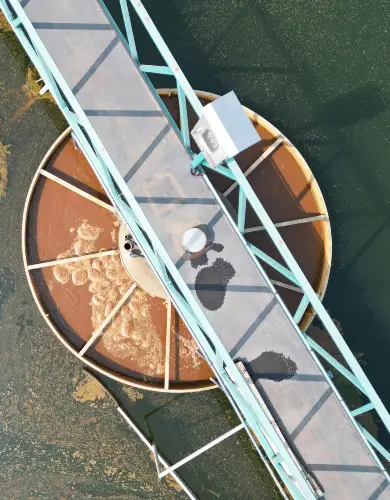Our guide to saving money on business water bills
Reducing water bills is often overlooked when businesses look to cut costs, but it can deliver meaningful savings.
By understanding how your business consumes water, you can apply practical strategies to reduce your water bill, save your business money, and support long-term sustainability goals.
This guide explores how to save money on your business water bills by improving water efficiency, identifying waste, and making smarter choices about how water is used across your sites.
Simple steps to start saving on business water bills today
Before making major changes, start by reviewing your current business water consumption.
Business water rates are charged for each cubic meter of water so reducing water usage leads directly to lower bills.
Install water-saving devices
Fitting low-flow taps, dual-flush toilets and automatic shut-off systems can help your business save money on water bills with minimal disruption.
Monitor for leaks and faults
Unnoticed leaks can lead to thousands of litres of wasted water. Regular inspections of plumbing, tanks and appliances help reduce your water bill and prevent costly repairs.
Improve staff awareness
Encourage employees to use water responsibly and report faults quickly. A business-wide focus on water efficiency can lead to significant savings over time.
Long-term business water saving strategies
Reducing your water consumption is key to lowering your business water rates over time. These long-term strategies can help you improve business water efficiency, avoid unnecessary waste, and reduce your business water bill across all areas of your operations.
Conduct a water audit
A full business water audit will highlight inefficiencies, leaks and usage spikes. Some suppliers may even offer audits for free if you switch. Regular auditing supports your business water savings by showing where action is most needed.
Benchmark and analyse usage
Compare your consumption over time or against other similar properties used by your business.. Benchmarking allows you to find unusual patterns and improve your understanding of how to save money on water bills long-term.
Install smart water meters
Smart water meters allow you to monitor usage in real time, set reduction targets and spot leaks early. This level of control helps reduce business water bills through better visibility and faster response.
Upgrade infrastructure for water efficiency
Implement simple yet effective upgrades, such as sensor-activated taps, efficient flushing systems, and rainwater harvesting devices. These improvements support your business water efficiency strategy and help future-proof your operations against rising costs.
Commit to regular maintenance
Keep your systems efficient by insulating pipes, checking for leaks and faults, and maintaining key equipment. Preventing water waste is one of the easiest ways to reduce your business water bill without changing day-to-day operations.
Business water wastage and water leakage
Unexplained increases in your water bill could be a sign of hidden leaks or unnecessary water wastage. Many businesses lose money every year through leaking pipes, ageing fixtures, or poor monitoring. These issues often go unnoticed and lead to reduced business water efficiency.
If your business water bills are regularly higher than those of similar businesses, there may be a leak. Common signs include damp areas, mould growth or even subsidence. These problems can accumulate slowly and incur long-term costs to your operation.
In 2023, water companies in England and Wales lost over one trillion litres of water through leaks, according to a report from The Guardian. This highlights the importance of proactive measures in identifying and addressing water wastage.
Our full guide to commercial water leaks explains how to find and fix leaks in your system.
Taking early action can help reduce your water bill and support your wider water efficiency strategy.
How to get help with high water bills
If your business is paying more than expected for water, there are several ways to take control of your costs.
Business water rebates and support
You may be entitled to rebates for overcharges, incorrect billing, and in business water bills you’ve already paid.
A typical example is incorrect property size data used for surface water drainage charges.
Business water rebates can be claimed for up to six years. Use our water bill validation services to check for billing errors and overcharges.
Water bill consolidation
If your business operates across multiple locations, you may be receiving several water bills from different suppliers. This can make tracking usage and managing costs more complex than it needs to be.
Water bill consolidation allows you to combine charges from all sites into a single, easy-to-manage bill. It simplifies administration, provides better visibility into your total usage, and makes it easier to identify potential savings.
To learn more about how consolidation works, visit our water bill consolidation guide.
Check your current contract
Many businesses are on default business water rates because they’ve never signed a contract or switched suppliers. These default tariffs are usually more expensive than negotiated deals.
Reviewing your current arrangement could reveal simple opportunities to cut costs. If you’re on a default rate, you may be able to switch business water supplier and access lower prices and better service straight away.
Visit our business water suppliers to understand your options for switching to a cheaper and better water service.
Saving money on business water rates
Ready to reduce your business water bill? Whether you want to switch to a better water tariff or find out what other suppliers are offering, we can help you take the next step.
Head to compare business water suppliers to see how much you could save.
Making a change today could mean lower bills and long-term business water savings.

